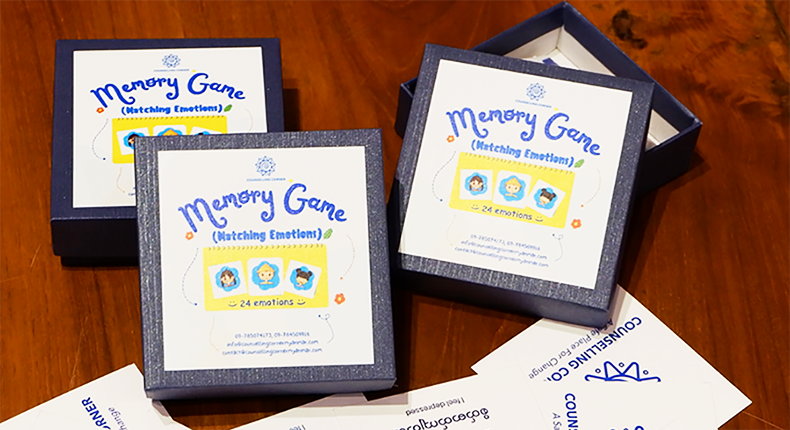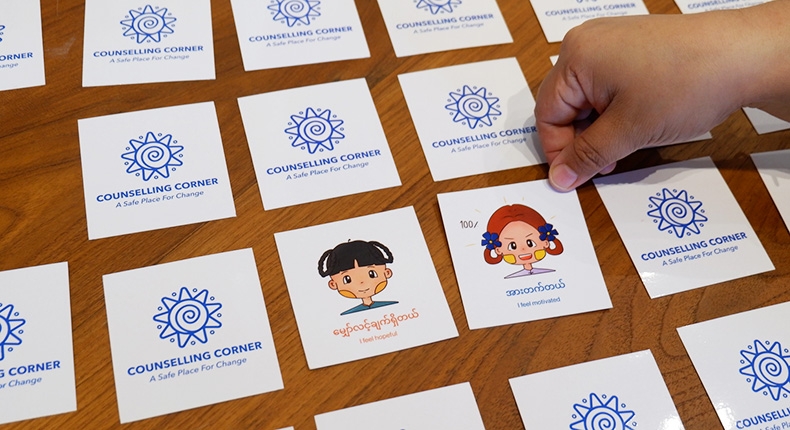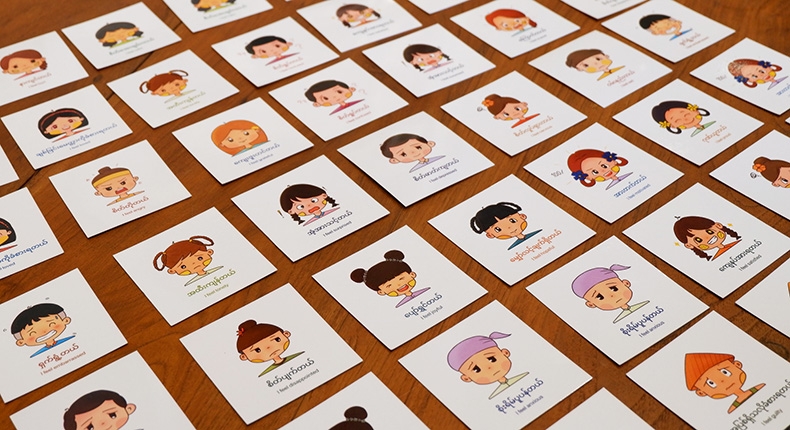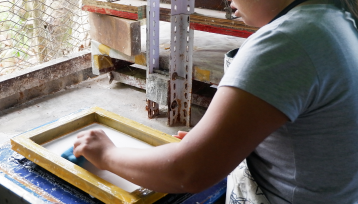“Our goal is to help people alleviate mental and emotional stress.” This is the motto over at Counselling Corner.
“Acknowledging difficult emotions is crucial for healing, starting with developing the vocabulary to identify these feelings.” The Counselling Corner team has created a fun and interactive memory game designed to help you acknowledge your feelings.
Counselling Corner, founded during the pandemic, aims to enhance mental health by connecting individuals with licensed professionals for psychotherapy. Data from emotional well-being workshops revealed that many in Myanmar struggle to identify and express difficult emotions, possibly influenced by societal stigma. This is why this game was created; it is a fun way to communicate your feelings through a playful game! You can read more about Counselling Corner Myanmar here.
So what exactly is the game about? Well, it is a memory game consisting of 48 cards with 24 different emotions printed on them in both English and Burmese. You learn how to express your inner thoughts in both languages! As with all memory games, you need to find identical pairs. The winner is the player who has the most number of pairs matched.
How to play:
Shuffle the cards well and lay them all, face down.
Playing clockwise, each player turns over any two cards
If the cards match, keep them and have another go.
If the cards don’t match, turn them back over in the same spot.
Repeat this process until you have found all the matching emotions.
The game is over once all the cards have been matched.
We sat down with Ma Nwin, a team member, who was involved in the development of the game. We asked her about the process of developing this game. She told us that the counsellors at Counselling Corner collaborated with a freelance graphic designer to portray the emotions on each card. The game is very visually appealing, with great Burmese influence seen in the illustrations. Many of the characters’ faces are also portrayed with thanakha, a cosmetic paste made from ground bark.
When asked what was the most challenging aspect of the process, she answered that it was the slight differences in facial expressions. “It wasn’t easy depicting the nuances of different emotions that were similar but not identical.”For instance, there were a lot of back and forths about how anxiety and worry should be portrayed. Subtle changes such as shifting of the eyes make a huge difference in presenting various emotions. This just goes to show the dedication and hardwork of the team!
Interestingly, the Hla Day team noticed that a majority of the characters showing emotional distress were female and we asked if there was any intent behind this detail. To our surprise, Ma Nwin did not even notice it! She revealed that there was no specific reason for allocating a gender to a certain emotion. Emotional complexities do not choose to affect one gender more than the other. Because after all, the main message of the game is that “Emotions are normal and it’s good to talk about them with your partner, friends and family,” no matter what gender or nationality you are.
As you can imagine, this game could be great fun if you’re playing with some friends. Ma Nwin recommends this game for groups of two to eight people, fit for all ages. It serves as an educational tool for teachers to help children identify and regulate emotions. Parents can also use it to bond with their children and guide them through difficult feelings, enhancing vocabulary for self-expression.
This game can bring together different generations of a family, fostering a sense of unity. Even children can participate, with Ma Nwin adding that their memory abilities are very sharp and thus they memorise the names of different emotions, giving them the vocabulary to voice their own thoughts and feelings.
The game not only mentally engages you by utilising your memory, but also serves as an instrument for emotional growth. It presents players an opportunity to open up and talk about how certain situations evoke complex feelings. Learning how to acknowledge difficult feelings will help you navigate through adversity and take the first steps towards emotional healing and clarity.
If you are interested in this enjoyable game, be sure to check out Memory Game here.
Written by: Hsu Mon Zaw











